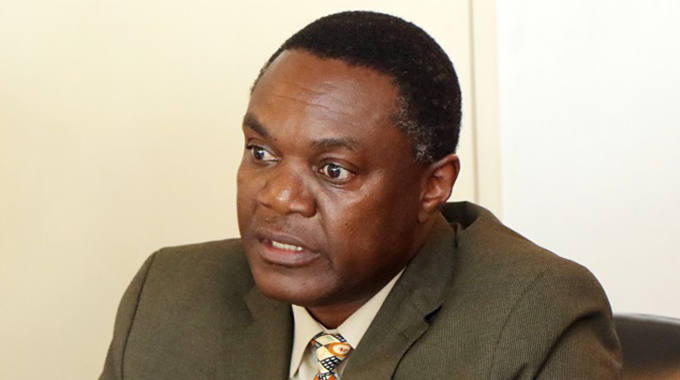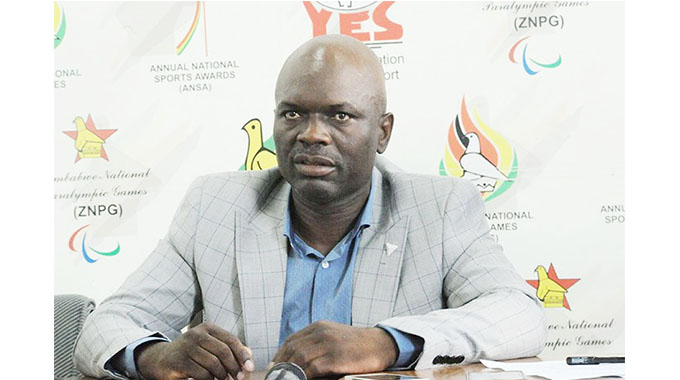‘Consistent policy signalling to curb market distortions’

Oliver Kazunga, Senior Business Reporter
CAPTAINS of Industry have called on the Government to keep maintaining right policy signals so as to curb market distortions that render the formal sector uncompetitive.
Contributing during a recent economic policy reform meeting organised by the Ministry of Finance and Economic Development in Bulawayo, the Confederation of Zimbabwe Industries (CZI) vice-president, Mr Joseph Gunda, said policy consistency and signalling were key factors in influencing market behaviour.
“The Government must continue to send the right signals to eliminate market distortions. Dollarisation is not our (CZI) policy, we believe in our local currency but the signal that the market can use free-funds is sending the wrong signal that the economy is dollarising,” he said.
“We, as industry in the formal manufacturing sector, sell in local currency but what is happening right now is that the informal sector is so much embedded in trading in foreign currency based on the notion that the economy is dollarising and that is rendering the formal sector uncompetitive.”
Of late, some players, particularly the informal sector, were rejecting trading in local currency opting for the United States dollar and the South African rand. This is despite the fact that a majority of the country’s workforce earn salaries in local currency. In March this year, the monetary authorities proclaimed that holders of free funds have an option to pay for goods and services in foreign currency.
The option to use free funds to pay for goods and services chargeable in local currency was made taking into account that limited forex resources were negatively affecting balance of payments. In addition, the policy was approved to help the business sectors in the face of global economic turbulence caused by the Covid-19 pandemic.
“When we put a policy, we need consistency. Why we have policy resistance is because we lack implementation. We take time to intervene yet we know our problems but we don’t act timely,” said Mr Gunda.
Speaking at the same occasion, CZI manager for membership services and marketing, Mr Kuda Matare, said while positive macro-economic gains were being felt as a result of various interventions under the two-year Transitional Stabilisation Programme (TSP), such gains as exchange rate stability could be fragile on account of lack of confidence in the market.
“We have the positive things that we have seen in terms of the projections where we are going and in terms of the reflections based on performance of the TSP,” he said.
The TSP is an economic blueprint launched in October 2018 and ends in December this year. The policy has achieved milestones on fiscal consolidation, monetary policy restoration, liberalisation of the foreign exchange market, structural and governance reforms, re-engagement, investment promotion and support for the productive sectors, according to the Treasury.
“It’s always good to reflect on some of the potential pitfalls so that we don’t repeat the same things. For us as CZI, stability, particularly macro-economic stability brought about by the TSP through the foreign currency auction trading system, needs to be supported because as far as we can see, we feel that the stability at the moment is fragile,” said Mr Matare.
“It’s fragile because there is a lack of confidence in the market and if we miss that opportunity to consolidate on what we have already built it will be a great loss and to bring back that confidence is key and how to bring back that confidence is premised on policy consistency.”
He said the private sector requires progressive policy consistency over a prolonged period of time and thus it was their hope that as Government crafts the new National Development Strategy (NDS), consistency would take centre stage in order to consolidate on the positive macro-economic gains achieved so far.
Businessman and Zimbabwe National Chamber of Commerce past president, Mr Obert Sibanda, said it was imperative for all Government employees to articulate public policies clearly to give confidence to the market.
Through NDS, the Government aims to bolster infrastructure projects viewed as critical for the attainment of an upper middle-income status by 2030. The first NDS covers the period 2021-2025 while the second phase would be implemented from 2026-2030, leading the country to attain an upper middle-income economy by 2030. – @okazunga.











Comments